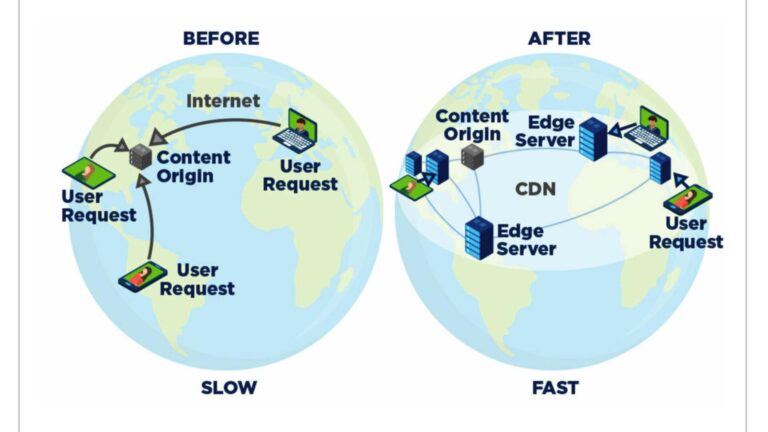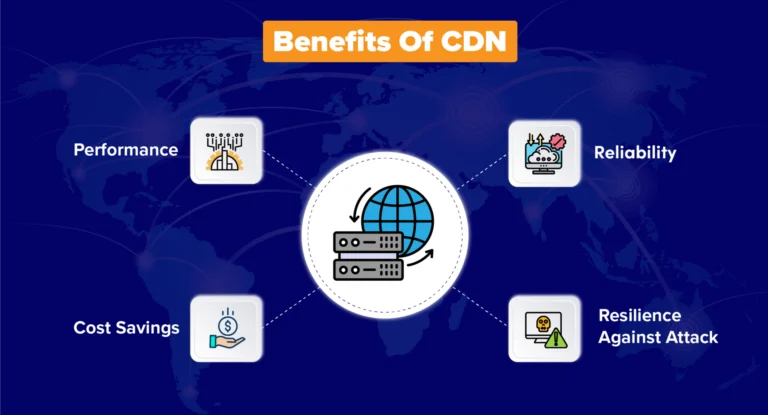
A Content Delivery Network (CDN) is a group of servers located in different parts of the world. These servers work together to deliver website content quickly and efficiently to users based on their geographic location.
Think of it like this: instead of loading your website from a single server (which might be slow for users far away), a CDN loads it from the server closest to the visitor. This means faster access, smoother performance, and better user experience.
How a CDN Works: The Backbone of Fast, Secure Websites.
In today’s digital world, speed is everything. Whether you’re running a blog, an online store, or a large business website, your users expect fast loading times and reliable access — no matter where they are in the world. That’s where a CDN, or Content Delivery Network, comes in.
But what exactly is a CDN, and how does it work behind the scenes? Let’s break it down in a simple way.
How Does a CDN Work?
- User Requests Your Website
- When a visitor clicks on your website link, their browser sends a request to access your content.
- CDN Locates the Nearest Server
- Instead of going all the way to your main server (also called the origin server), the CDN identifies the nearest edge server — a CDN server closest to the user’s location.
- Content Is Delivered from the Nearest Server
- The requested content (images, videos, CSS, JavaScript, etc.) is served from that nearby server. If the server doesn’t already have the latest version of the content, it retrieves it from your main server, caches it, and delivers it.
- Next Time, It’s Even Faster
- Because the content is now cached on that edge server, the next user from the same region gets the content instantly — with minimal delay.

What Kind of Content Does a CDN Deliver
- Static files: Images, stylesheets (CSS), scripts (JS), fonts, videos
- Web pages: HTML files
- Software downloads: Apps or updates
- Live streaming content
Benefits of Using a CDN

- Faster Load Time
- Visitors get content from a server near them.
- Improved Global Reach
- Your site performs well across the world, not just in your server’s region.
- Reduced Bandwidth Costs
- CDNs cache files and reduce the need for repeated data transfers.
- Website Stability
- During high traffic or DDoS attacks, CDNs help keep your site up and running.
- Better SEO
- Faster websites are favored by search engines.
Does a CDN Help With SecurityAdd Your Heading Text Here
Absolutely. Most CDN providers offer built-in security features, including:
- DDoS protection
- Secure SSL/TLS encryption
- Web Application Firewalls (WAF)
- Bot mitigation
A CDN is one of the smartest tools you can use to improve your website’s speed, security, and global reach. Whether you’re running a small blog or managing a large ecommerce site, using a CDN ensures your visitors always get the fastest and most secure experience — wherever they are in the world.
By understanding how CDNs work, you can make more informed choices about your website’s performance and user experience.
